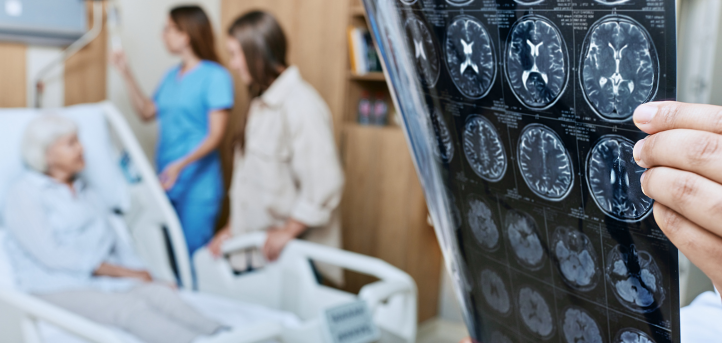The director of the degree in Human Nutrition and Dietetics, Iñaki Elío, and the researcher of the Universidad Europea del Atlántico (European University of the Atlantic, UNEATLANTICO), Mercedes Briones, are participating in a study that analyzes how Alzheimer’s affects different parts of the brain at each stage of the disease using machine learning.
Alzheimer’s disease (AD) is a neurological disease that gradually destroys brain cells resulting in a decline in memory, cognitive abilities, and daily function. This disease develops in three stages, beginning with some symptoms of memory impairment, called mild cognitive impairment (MCI). With each advancing stage of AD, the disease becomes more severe, and individuals experience greater difficulty in performing their daily tasks.
Alzheimer’s disease currently affects more than 90 million people. In fact, it is estimated that by 2050 the number of patients will increase to 300 million. Therefore, the aim of this research has been to analyze the brain regions that are affected at each stage of AD.
The study examined six regions in the mild cognitive impairment stage, four in the early stage of Alzheimer’s disease (AD), six in the moderate stage, and six in the severe stage. The identification of the different stages was performed with the help of machine learning algorithms.
Research results
Brain areas affected by MCI were found to include the cuneus, precuneus, parahippocampal, middle frontal gyrus, putamen, and superior frontal gyrus.
The areas that are moderately affected are the calcarine cortex, middle superior frontal gyrus, middle frontal gyrus, and the wedge.
The brain areas affected in the severe stage of AD are the calcarine cortex, precuneus, parahippocampus, superior frontal, and middle temporal gyri.
If you want to know more about the study participated by Iñaki Elío and Mercedes Briones, click here.
For further research, check the UNEATLANTICO repository.


